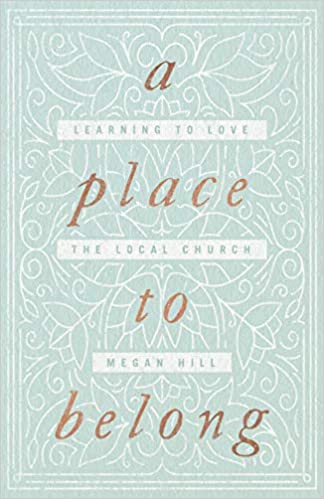Formation Area 3:
The People of God

God is concerned with forming not just persons, but a people. Not simply individuals, but a community. In the New Testament, the context for formation is the local church. The metaphors used to describe the church (as members of a body, living stones of a temple, etc.) demonstrate that individual formation is inseparable from being formed as the “People of God.” Each individual church is an outpost and foretaste of the kingdom of God.
“Once you were not a people, but now you are God’s people.”
— 1 Peter 2:10
CORE TEACHINGS
01 Purpose of the local church
In the Bible, discipleship is never a solo or solitary endeavor. The church is not just a place to attendance, but a place of belonging. Jesus establishes his church through qualified leadership in order to equip his followers to gather for worship (e.g., teaching, singing, giving, the sacraments) and scatter for mission together (1 Cor 11:16-19, 14:40; Ephesians 4:11-16; Col. 3:16; Hebrews 10:26).
02 Purpose of church membership
Church membership is a way of summarizing relationships we are called to in Scripture. Church membership is a way of honoring the commitment we are meant to have toward “one another” in a local context as well as toward the church leadership God establishes in our lives (Galatians 6:2, Hebrews 13:17).
03 The Value of church history
Belonging to Christ means belonging to a new story and a new family. Just as each of person has a family history, in Christ we receive another family history. The Holy Spirit has been at work in this family for 2000 years. By observing “church history,” we learn to value those who have come before us and learn from them – we glean wisdom from their teaching and their mistakes, for more read here or here. (Hebrews 12:1-2, 1 Peter 2:10).
04 Unity in Diversity
The church is meant to be a community of diversity – made up of people of different ages, stages of life, and ethnicities. This is part of the beauty of what God is doing.
05 Discipleship relationships
While discipleship is holistic and life-long, it is often helpful to have intentional relationships with others to help cultivate growth (whether that be to equip, encourage, or provide a level of accountability). Discipleship relationships work best when they have clear expectations and goals.
Key Practices
01 Gather weekly
The word “church” (ekklesia) implies those who gather. The vision in the New Testament is of a people who gather weekly in worship for teaching, singing, giving, community, and participation in the Sacraments.
02 Become a member
“The Membership Class” is offered regularly. At this class you will receive an introduction to PBF’s vision, mission, structure, ministries, and theology. This class is coupled with a dinner and an opportunity to become a member. RSVP for the next class here.
03 Cultivate community
One of the practices of the early church was to work out the implications of the gospel in the context of community and relationships (particularly, the “one another” passages of the Bible). Find community in groups.
04 Find a place to serve
One of the ways for a church to become a home is to find a place to serve within the church. There are lots Serve Team opportunities (whether through greeting, serving coffee, setting up, teaching kids), you can indicate interest here.
05 Care for others
Love is often expressed best when caring for others. Consider being available to visit the lonely and grieving; writing cards; sending flowers; providing meals to new moms; being part of a prayer team. Email [email protected].
.
Recommended Reading
If you’d like to grow more in your understand of discipleship, check out some recommended reading in order to understand the goal of discipleship, formation, and the kingdom of God.
Other recommended reading:
- Devoted to God's Church (Ferguson)
- The Next Christendom: The Coming of Global Christianity (Jenkins)
- The People of God (Joy/Shelton)
Church History
- ARTICLE: "Why Church History Matter"(Jones)
- FREE E-BOOK: "Why Church History Matters" (Scazzero)
- Church History in Plain Language (Shelley)
Church Membership
- VIDEO: "Is Church Membership Really Necessary" (Trip Lee)
- I Am a Church Member (Rainer)
- Church Membership (Leeman)








